The New Deal is back and are playing 3 shows in CO this weekend. As one of the first bands to combine the electronic dance beats of house music with the improvisational excitement of a live band, the Canadian trio is has spent the last several months breaking in a new drummer and getting back to what they do best. Rarely picking out a set list list or even songs to play, The New Deal truly captures the magic of what can happen when like minded and talented people come together to experiment and improvise. Listen Up Denver! was lucky to get some time with Bassist Dan Kurtz to talk about what its like being back at it, how they fit into the every changing landscape of electronic music, their approach to the studio, and how life on the road isn’t exactly like a Motley Crue video.
Listen Up Denver!: Its been almost a year since you guys announced the return of The New Deal. How good is it to be back?
Dan Kurtz: Playing New Deal music is the best. Its the best just because I realized, and i think Jamie would say the same thing, is that we’ve done it for a long time and it informed how we make music in every way. Whether its in The New Deal or outside The New Deal, it’s in our blood basically and when we stopped playing it took a while to notice how hungry we were for that. Having it back feels like a gift really. It reestablished equilibrium in my musical metabolism.
LUD!: Is there anything you now realize you really missed about playing in The New Deal?
DK: For me, and I can only speak for me, there is a physicality playing in The New Deal that you don’t really get elsewhere. As a bass player, you don’t really get that playing bass in other scenarios when you are playing more traditional bass. To me, when I watch the best bass players, the instrument becomes part of their body and the amount of energy I need to put into playing, even with my feet in working my pedals, that feeling is almost impossible to come by in any other scenario that I play in. Whether its in the studio or playing with Dragonette, its just a very different beast. Also, [pauses], and math is kind of the wrong word but I am going to use it anyway, the math that goes on in your head when you are trying to make music up on the spot, play it with confidence, and adapt to what’s going on around you, musically, its something that if you can do it, is an amazing feeling. It feels like neuroplasticity. I love how my brain feels when I am playing with The New Deal.
LUD!: I’ve always heard you reference specifically what its like to play in The New Deal vs. other types of music. For those that might just now be getting turned on to TND can you talk what separates you from some of your peers, especially from what’s going on in other parts of the Electronic music scene?
DK: Well I guess first, the sound palette is different just because, if you compare it to the more EDM /DJ side of the scene, the sound palette is different because we are playing real instruments played by people. I spend the rest of my time in the studio making music so I am pretty familiar with the notion of treating performances like samples that can be chopped up and fit into different holes. Its a different approach when you are playing parts in real time and for me, although i love the sound of synth basses and use them a lot, every time I pick up a bass guitar the bass lines that I play have a more human quality. Thats not to say that music that isn’t played on instruments is inhuman, but when you put three people playing music together its different than people playing along with machines or even a drum track. It gives us a freedom and allows us to create music and a vibe in a much more organic way. I’ve been a slave to Ableton before and know what that looks and feels like and it doesn’t mean you can’t make great tracks but we have a flexibility that allows us to make music to according to how the crowd is wanting us to play. I think that is what appeals to a lot of people about our band. I think people have a sense that they are influencing our playing, what we are playing, and how we are playing it. It ends up being different all the time and we are making it up on the spot all the time which is what people love seeing from us.
LUD!: With drums playing such a big role in what The New Deal does, what was the biggest challenge in bringing in a new drummer like Joel (Stouffer)?
DK: I think Joel, whom I have played with a ton in Dragonette, for him the biggest challenge was power, stamina, and taking a lead role. Trying to lead a band in terms of radically changing the tempo, feel, and vibe or energy, I think that’s not a situation most drummers find themselves in and luckily Joel comes from a multi-instrumental background. He is an amazing keyboard player, he produces records, he plays reasonable guitar and bass [laughs] and can hear the music from the top down. Luckily he can do all those things and hear that, otherwise we wouldn’t be able to do what we are doing. Filling Darren’s [Shearer] shoes is an enormous challenge and he’s been doing a great job. Darren is Darren and nobody will be like Darren but Joel is Joel and what he brings is an entirely different palette and sensibility that is really great to work with.
LUD!: Do you think it helped that you had a relationship with him from Dragonette prior to him joining TND?
DK: Oh for sure, he is used to me telling him what to do [Laughs]. But totally, and as people we get along so incredibly well. It’s a real gift and it has been a fun time.
LUD!: You have mentioned in the past that the changing landscape of EDM, specifically the release of Daft Punk’s Random Access Memories, helped lead to The New Deal reforming. Can you talk more about that and where you see TND fitting into that shift?
DK: Well I heard that record and thought to myself “This is like a signal from the godfathers of dance music that we have gone too far away from the roots of what started all of this.” You know, the sound palette has changed beyond recognition, the tempos have gone away from the human heart beat pulse range and if we, the soundsmiths of the 21st century, are going to try to pull again from that amazing palette of sounds I thought “Yeah man, that’s talking to me.” Listening to that record, what I loved is the bold step backwards that is forward and backwards at the same time or whatever [Laughs] it really resonated with the reasons I got into playing this kind of music. Its a much more natural place for where The New Deal fits. We are super influenced by music as it comes out and we bring those elements into what we are playing but because its still people playing it, as opposed to more of a programming nature, we still have our feet more in the era that Daft Punk is referencing than say a super tough Dubstep record does.
LUD!: How much does what is going on in music, and maybe its not just the the Electronic music world, shape your interests and what the band is going for?
DK: Its hard to tell. I couldn’t articulate to myself what’s buzzing through my head musically. You know I was just listening to Biggie Smalls on the radio this morning and was thinking “Fuck, I’d love to make a record like that” and I was thinking about how imperfect some of the beats on that record are and thinking “Wow, that’s so cool.” These guys were working with really limited sampling technology at the time, and that for sure will find its way into something I do. Whether its with The New Deal, the next Dragonette record I make or whatever. That said I don’t think we have ever had a conversation like “Hey man, I was just listening to the new Franz Ferdinand track and I think I want to play guitar on the next few shows.”
LUD!: As being one of the pioneering groups of live, improvisational electronic music, did you expect to see electronic music blow up like it has?
DK: I really could not of thought that it would go any other way. When we started making that music we were listening to underground music, but bands like Groove Armada and Daft Punk and guys like Fatboy Slim were hitting the mainstream and crossing over into pop music like 20 years ago. And that’s not the first time that has happened. A lot of the music In the 80s was made by guys that were listening to wacky electronic music. Like Kraftwerk becomes Depeche Mode becomes whatever you know? I think the difference now, in terms of the explosion of it, is because back in the day, like 30 years ago in that first wave of electronic music, the gear was pretty expensive to make records. With the second wave it required people to still be pretty tech savy with shitty versions of Pro Tools versus now, where $400 will get you into a computer with Ableton on it so there are a lot of people that can make really amazing music. Of course now it ends up being in that genre because people can’t be setting up horn sections in their dorm rooms. But anyway its no surprise – the short answer is there is no surprise.
LUD!: So shifting gears a bit. The New Deal has been a band that keeps things loose and unplanned at your live shows. What does that add to the live experience vs. playing in or seeing a band that has more traditional songs and set lists?
DK: Well it keeps us on our toes. Nobody can get too drunk [laughs] so i guess there is a health component. I don’t think we can have it any other way. The times we’ve tried to set things up or worst case scenario, we did a show of covers and had to remember what we had to play next, ironically that was one of the most terrifying New Deal shows I’ve ever had to play. For some reason we are just much more comfortable walking out there and not knowing what the fuck we are going to do. Maybe that is just habit at this point or that we are addicted to the wobbly energy of that, but its been a good strategy for us. Also, for the fans, it makes the experience different every time. For people who like that, which includes New Deal fans, that’s part of the excitement.
LUD!: It’s that whole thing of not letting your brain get in the way. From a fans perspective it’s always great seeing a band that’s truly in the moment and not thinking about it.
DK: And not looking like they are shitting bricks [Laughs]
LUD!: You’ve been in the studio working on some new tracks. How has that been going?
DK: Yeah, I was actually at it this morning and late last night. We are working on some tracks to try and consolidate some of the ideas that we’ve come up with, and that was one of the things I was going to say. One of the amazing benefits about making stuff up on stage is you come up with cool shit that you can use later if you are not being as lazy as we have traditionally been [laughs]. That’s kind of what we are doing now. There are things that we hear when we play the live shows back and are like “Hey that can be a song” and that’s one of the cool things that Joel brings. Now we are three of three guys that spend a lot of time on our computers making music and now doing that with The New Deal is a new thing for us.
LUD!: Whats the process like? Are you trying to recapture some of the magic and ideas that happen in the live setting?
DK: Yeah, totally. We will replay it and try to develop it a little bit and pick the good bits. Which is a nice part of editing [laughs].
LUD!: Do you guys have anything that you have been working on that we might hear out in CO this weekend?
DK: Yeah, if we can remember how to play it [laughs]. But yeah, we will get there. There are definitely two things we are pretty excited about playing out live. We will have to do it in sound check and see how it goes [laughs]. But the studio stuff, what we are not doing is trying to make a shiny, bikini waxed version of what its like to see The New Deal live. We are taking ideas that we’ve come up with in an organic, New Deal-y, kind of way and are experimenting with documenting them as records and not as a recreation of a live show.
LUD!: When can fans expect to see some of these tracks released?
DK: We are going to figure out how best to do that. We will have two or three that we’d like to put out at the same time. We are just about done with the first two and the third is cued up already. We have done most of the tracking for it and just need to spend the time in the studio to make it good, better, best [laughs]. I guess the answer is soon. Its been a sustained effort from us. We are doing it everyday.
LUD!: You’ve added a few more shows to the calendar. Do you guys have even more plans for later this year?
DK: Oh yeah. Its such a nice position for us to be in right now. We have a great manager, Mike [Pollans] and its so good to not have to deal with a lot of that stuff. We’ll sit down weekly and hear about what’s coming up and I know there are shows getting planned for this summer and in the fall so yes, consistently, more shows are coming up.
LUD!: Are you guys trying to pace things out so that you don’t burn out? You’ve said one of things that led to you stopping was that it started to feel like work. Is that something you’ve been thinking about?
DK: Yeah, the biggest insurance against that is that the rest of real life gets in the way. Jamie has two kids so he can’t be gone that much, I am building a house and working on other records so real life can get in the way. In a dream world it would be awesome to tour all the time but we also know its not always like the fantasy. Luckily we are self limiting and the shows we play are really fulfilling for us.
LUD!: It seems like a lot of bands hit that 12-15 year mark, decide to take some time off or lighten their load then come back stronger than ever. Why do you think that is?
DK: Because it can be fucking crushingly exhausting [laughs] and can really compromise a lot of other aspects of life. Its hard on relationships, kids, its hard on your body, its just hard. From my own experience, the peak of my touring was about two and a half years ago. I was living in England and touring with The New Deal and Dragonette. I was flying from England all over the world and did that for over 18 months. There was always a crazy time zone shift, I would miss nights of sleep on overnight flights at least once a week. Once I stopped it took me months to sleep more than a few hours a night without waking up and being like “Where the fuck am I” or whatever. My body was fried.
LUD!: So its not like all the hair band videos from the 80s with slo-mo tour montages of girls and champagne bottles everywhere?
DK: [Laughs] Well those guys were 23 years old. I could do that when I was 23 [laughs]
LUD!: Lastly, with 3 shows this weekend in CO, is there anything you’d like to say to the fans out here or want them to know before they walk in the door?
DK: Come get your heads blown off. We’ve been dying to play for the last month and a half. Everything we’ve got we are bringing with us this weekend.
THE NEW DEAL – COLORADO RUN
The Belly-Up – Aspen
Thursday, February 26th
TICKETS
The Boulder Theater – Boulder
Friday, February 27th
TICKETS
The Ogden Theatre – Denver
Saturday, February 28th
TICKETS
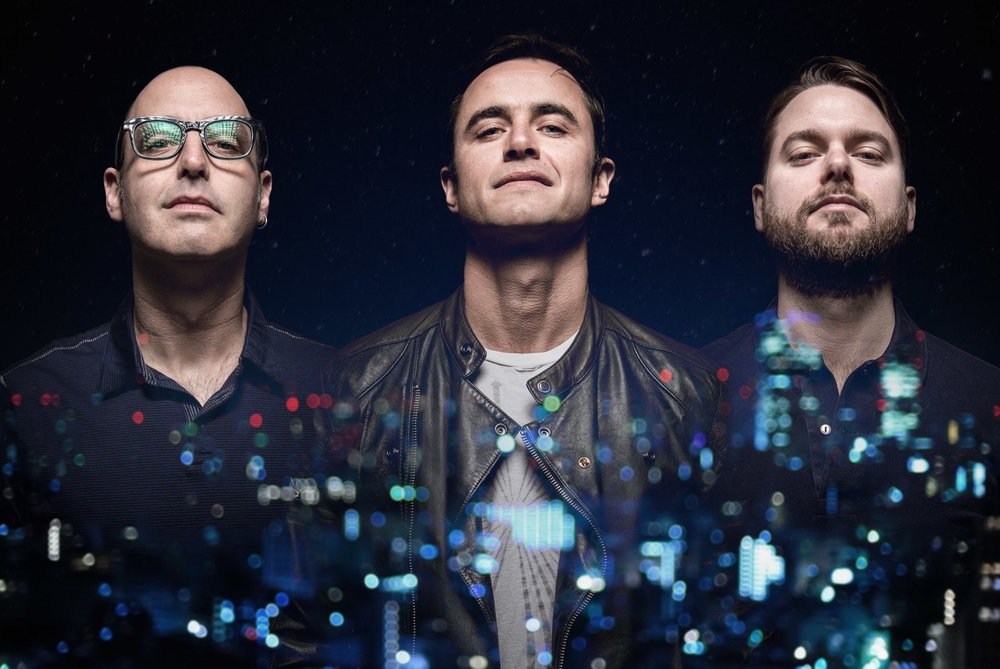
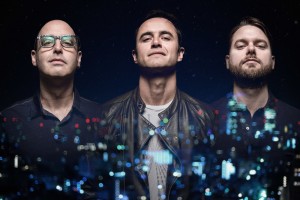
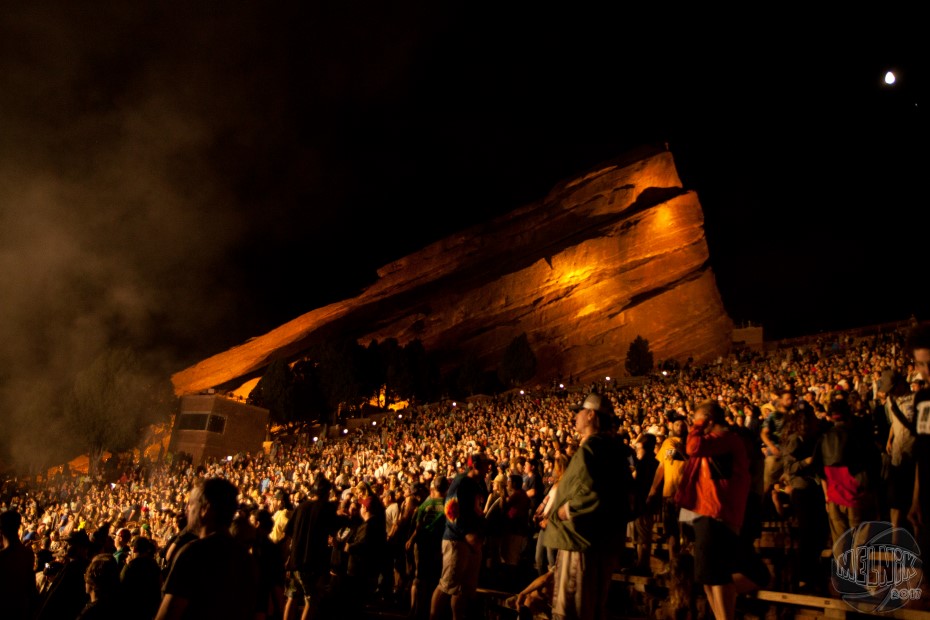
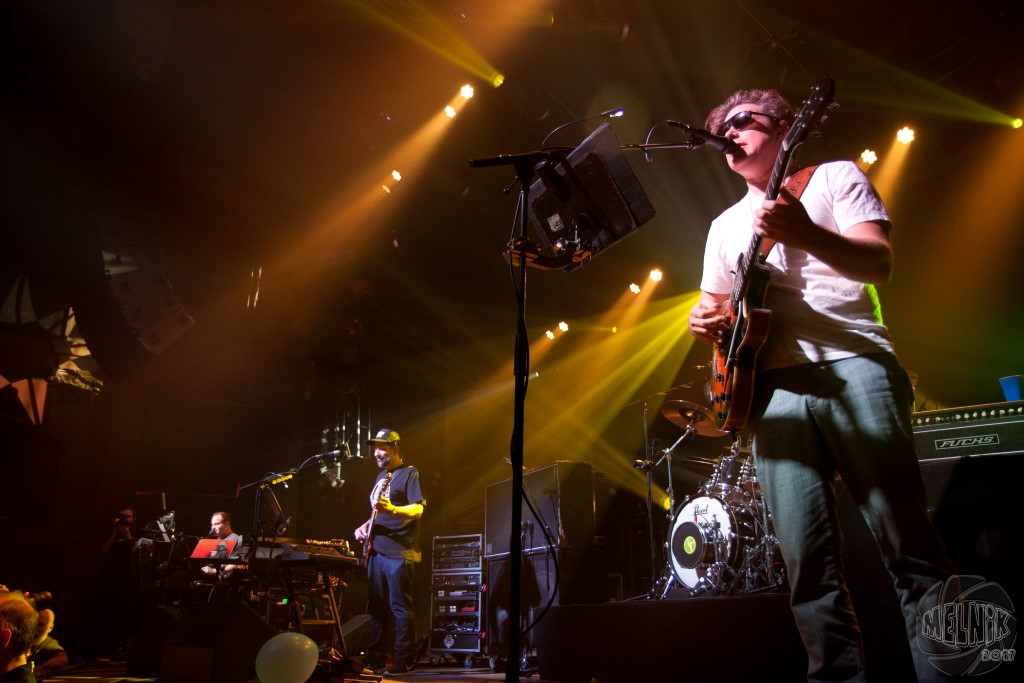

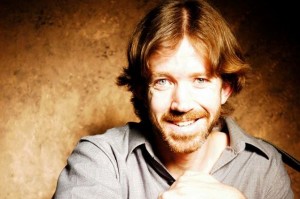
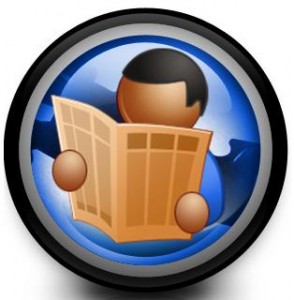
+ There are no comments
Add yours